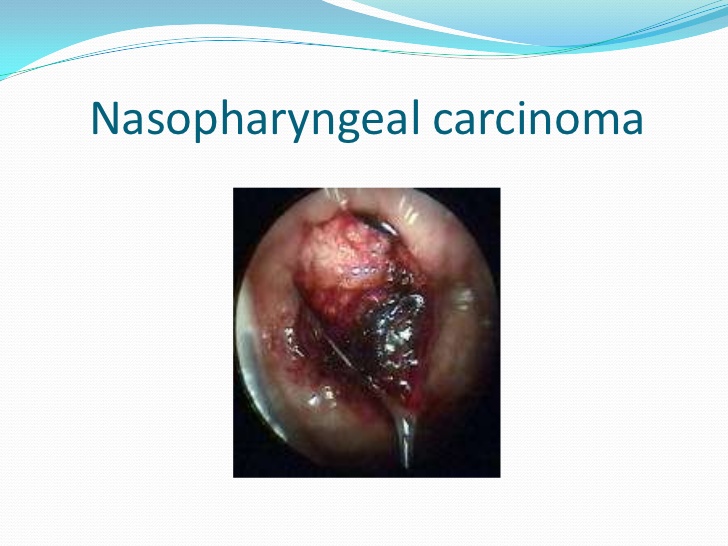Nasopharyngeal Carcinoma Causes, Symptoms, Diagnosis and Treatment

What Is Nasopharyngeal Carcinoma?
Nasopharyngeal carcinoma (NPC) is the most common cancer originating in the nasopharynx, the uppermost region of the pharynx, behind the nose where the nasal passages and auditory tubes join the remainder of the upper respiratory tract. NPC occurs in children and adults
It is most common in males. It is a squamous cell carcinoma or an undifferentiated type. Squamous epithelial cells are a flat type of cell found in the skin and the membranes that line some body cavities.
Nasopharyngeal carcinoma is difficult to detect early. That’s probably because the nasopharynx isn’t easy to examine and symptoms of nasopharyngeal carcinoma mimic those of other, more-common conditions.
Treatment for nasopharyngeal carcinoma usually involves radiation therapy, chemotherapy or a combination of the two.
Nasopharyngeal carcinoma complications can include:
- Cancer that grows to invade nearby structures. Advanced nasopharyngeal carcinoma can cause complications if it grows large enough to invade nearby structures, such as the throat, bones and brain.
- Cancer that spreads to other areas of the body. Nasopharyngeal carcinoma frequently spreads (metastasizes) beyond the nasopharynx.
Causes Of Nasopharyngeal Carcinoma:
Cancer begins when one or more genetic mutations because normal cells to grow out of control invade surrounding structures and eventually spread (metastasize) to other parts of the body
Exactly what causes the gene mutations that lead to nasopharyngeal carcinoma isn’t known, though factors, such as the Epstein-Barr virus, that increase the risk of this cancer have been identified.
Risk Factors Of Nasopharyngeal Carcinoma:
- Sex.
- Race.
- Age.
- Salt-cured foods.
- Epstein-Barr virus.
- Family history.
Symptoms Of Nasopharyngeal Carcinoma:
In its early stages, nasopharyngeal carcinoma may not cause any symptoms.
The following symptoms are exhibited in later stages:
- A lump in your neck caused by a swollen lymph node
- Blood in your saliva
- Bloody discharge from the nose
- Nasal congestion
- Hearing loss
- Frequent ear infections
- Headaches
Diagnosis Of Nasopharyngeal Carcinoma:
The diagnostic tests may include:
- Physical exam.
- Exam using a camera to see inside the nasopharynx.
- Test to remove a sample of suspicious cells.
- Imaging tests
Computerized tomography (CT)
Magnetic resonance imaging (MRI)
Positron emission tomography (PET)
X-ray
Treatments Of Nasopharyngeal Carcinoma:
Possible treatments may include:
- Radiation therapy
- Chemotherapy
Chemotherapy at the same time as radiation therapy.
Chemotherapy after radiation therapy.
Chemotherapy before radiation therapy. - Surgery
By : Natural Health News




